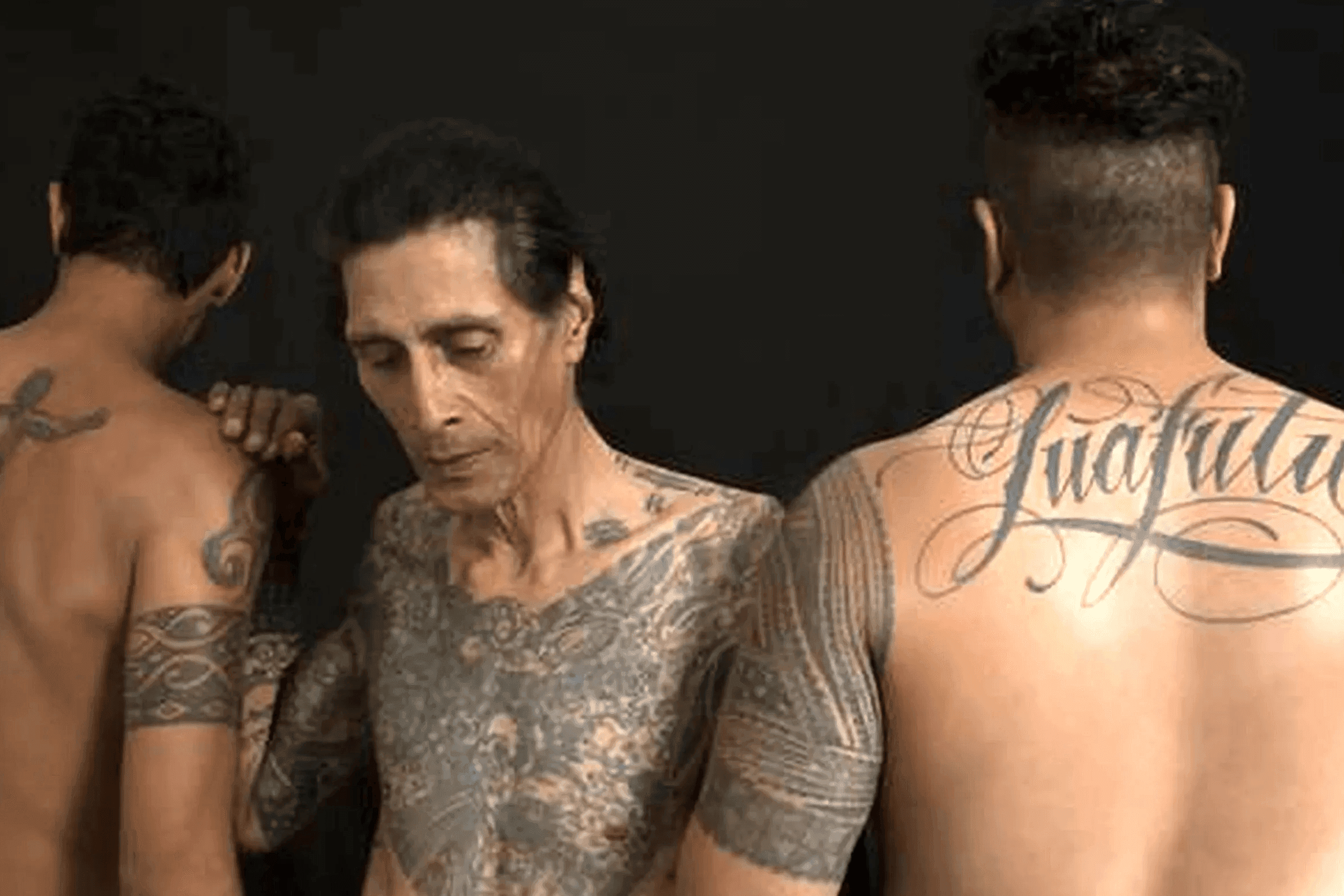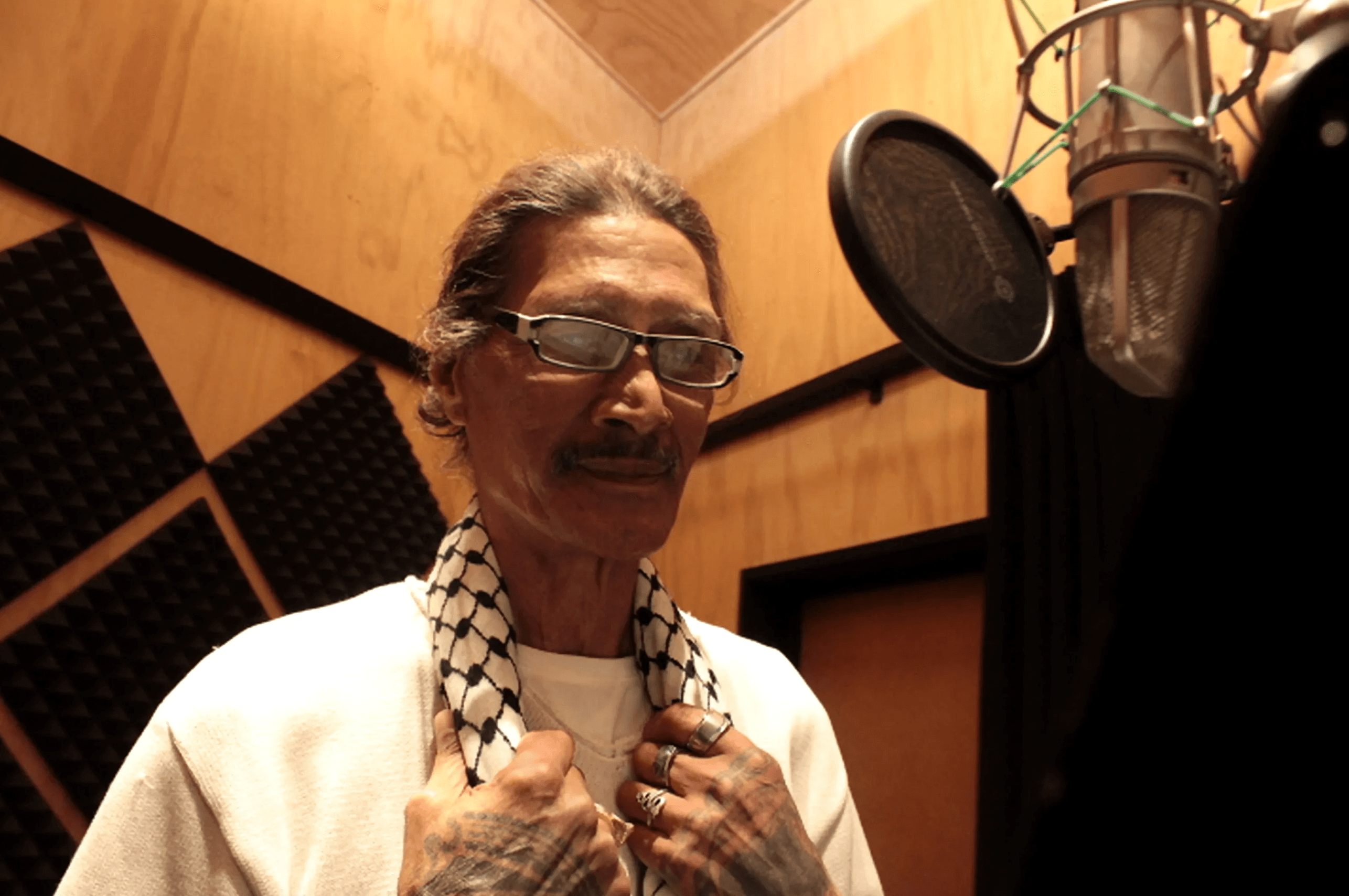"The Essence Of Creativity Is Healing"
From ward of the state to Honorary Member of the New Zealand Order of Merit - Fa’amoana Luafutu tells The Big Idea about his incredible journey through the arts all the way to the King's Birthday Honours List.
Written by

Fa’amoana Luafutu - the inspiration behind the acclaimed A Boy Called Piano body of creative work with producers The Conch - has been made an Honorary Member of the New Zealand Order of Merit for services to arts and the Pacific community in the King's Birthday Honours List (click here for the full list of creatives honoured).
His story has been shared many times on The Big Idea - his contribution to social change as a writer and through his work in theatre and film has changed perspectives for many.
Luafutu wrote his first book ‘A Boy Called Broke’ while an inmate at Rolleston Prison. The book began an eight-year collaboration with The Conch, serving as the inspiration initially for the award-winning play ‘The White Guitar’, which toured nine New Zealand cities. He co-wrote the subsequent critically acclaimed play ‘A Boy Called Piano’, which toured nationally, was broadcast with Radio New Zealand before being adapted into a feature documentary, in which he told the story of his time in state care in New Zealand in the 1960s and the intergenerational impacts of this experience. The documentary won Best Feature Documentary at the Montreal Independent Film Festival, Māoriland Film Festival and featured at 12 international film festivals including in Finland, Tahiti and the United States in 2023.
He has played a key role in the Royal Commission of Inquiry into Abuse in Care, with his testimony at the Tulou Pacific hearing and the film inspiring others to come forward. He contributed writing to the award-winning series ‘The Panthers’, with the character of ‘Fuff’ based on his experience. Luafutu received a Special Recognition Award from Creative New Zealand for his contribution to Pacific Arts and Culture.
Luafutu told The Big Idea about what this recognition means to him.
When I was first made a ward of state, it was by a Judge representing the Crown. When I testified about abuse in care under that state, it was to a Royal Commission. Now I am to receive an honour - it is also from the Crown. I am humbled to be acknowledged but there is also complexity to this.
To understand what it means to me is to understand who I represent. Our parents came to New Zealand with the dream of a better life - we were all supposed to be doctors, lawyers, the sons for the return home. But for many like myself, who were made wards of state, that dream became a nightmare. We were the underachievers whose story was hidden by shame. As survivors, we lived lives under the burden of that shame, shaped by pain.
When I began to tell my story, it was to be a voice for the voiceless. I stood for all my friends who were in care with me and have passed on, never having been heard. For all those hurt who are in prison. For all those children being taken now. All those whose lives are stuffed up with mental illness, drug addiction, bad parents, broken families after being parented by the government.
When I stand to receive this honour, it is for them. Maybe by me being acknowledged, their story and the stories of thousands of others are being acknowledged. I hope that if I am seen and heard then they feel the same. Maybe if I am being recognised, it is a recognition that change needs to happen. If I am honoured that the need for healing and justice will likewise be honoured.

Creativity has been a saving grace for me. I believe our talents are God-given, so creativity is a spiritual journey toward the Creator himself. Often I have wondered why I survived when so many people didn’t. I realise I survived to tell the story. Thousands didn’t, I’m here by the grace of God.
As Pacific people, we are deeply creative - it is at the heart of our cultures.
As a child in Samoa, I grew up around great artists - they were our orators, dancers, singers, weavers, carvers, women making siapo - this was all part of everyday village life. In NZ it was a way to survive - first with the ukulele at school, playing and singing songs was the only thing I got praised for, me and a Niuean kid got sent around the classrooms to sing for each class. In the boys' homes, it was the guitar. I met some talented guitarists and that set me on my musical path. As featured in the film A Boy Called Piano - music, like the neck of the guitar, became a pathway out.
The path of learning music never ends. For me, music conveys emotion through sound. Through the range of sounds, I could express all the colours and shades of what I felt. Then came writing. In prison, I had a lot of time on my hands and so I read books - I read Albert Wendt’s Sons for the return home, it reminded me of my parents' dream of a better life and so I wrote to Albert and he wrote back, encouraged me to write. The book I wrote was the beginning of my writing journey and what, through my son, connected me to Nina Nawalowalo, Tom McCrory and The Conch.
The essence of creativity is healing. When people think of healing they think of easing pain, but the reality is to release it, you’ve first got to feel it.
In writing A Boy Called Piano, I had to go back to experiences I’d suppressed for years. I had to go into the darkness, to find the light. Even if it’s just a fine pinprick, you follow that thread and it leads you out.
Healing is not just something just personal - this country needs to face the truth of its history to heal. To do this we’ve all got to be creative, create solutions which bring change.
I believe the truth will set us free.